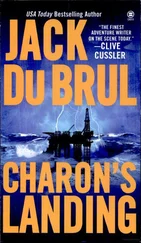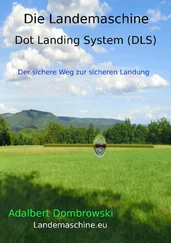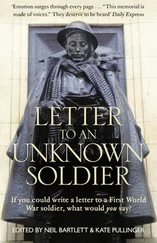Yacub filled the two big plastic water vessels while the song “Aj Latha Naeeo” played in his head. He used to listen to music with Farhan on his friend’s MP3 player. Farhan guarded that MP3 player as though it was a bar of gold, but sometimes he’d allow Yacub to use one of the earbuds so they could listen together. Farhan had been one of the first to leave the camp after Imran failed to show up on payday. “You should leave now,” he’d said to Yacub.
“Where are you going to go?”
“I have no idea,” Farhan said, “but I’m not staying here.”
The men behind him in the queue were talking about the burning ash cloud that had engulfed Europe, joking that at last the infidels were being punished. Yacub didn’t believe a word of that either. He made his way back to his building, and as he drew nearer he could hear the music from the limo welling up once again. To his amazement, the car was parked in the courtyard of his building. The courtyard was packed with men, everyone had got up off their bunks and come out to see what was going on. They hung back from the car as though they were slightly afraid or suspicious of what might be inside. The windows were rolled up tight now so no one could see into the car; music—muffled but still very loud—was making both the car and the courtyard shake. The men stood and stared, and the white limousine vibrated.
As Yacub put down the water vessels, the man standing next to him said, “Can it be real?”
Before Yacub could reply, the music stopped. No one moved. The car’s passenger doors opened and women spilled out. They were Pakistani girls, and they were dressed beautifully in cotton and linen shalwar kameez, blues and yellows and white and greens and pinks, patterns and stripes and solid blocks of colour, lighting up the grimy, stinking courtyard. They placed their hands together and said hello, each one looking as embarrassed as the next. The men pushed back, pressing themselves farther away from the car and its women, as if to get too close would make this mirage disappear. The women turned toward the car as though to climb back inside, and a collective groan of disappointment went up from the crowd. But they were only doing what they had come to do; the women began to haul boxes and crates of food out of the car.
Ten minutes later, the car was emptied and the great pile of donated food supplies was stacked carefully against a wall. Hardly a word had been exchanged between the women and the men of the camp, until Bashir, one of the eldest, spoke up. “Thank you, dear daughters,” he said. The women smiled in return and a wave of yearning passed through the men. Yacub thought of his sister; he’d been unable to afford to reply to her letters and they’d stopped arriving a couple of months before.
Imran emerged from the limo, a murky creature climbing out of the depths. He blinked hard in the unrelenting sunshine. He was dressed like an Emirati, in a white robe, his head covered. He spread his arms wide, a great leader come to greet his adoring people. Yacub felt the crowd draw back once again. He could feel his companions’ anger as plainly as he felt the heat of the day; they were preparing to retaliate. Without thinking, Yacub rushed forward. He grabbed Imran’s arm and said, “You better leave.” He felt the crowd behind him.
“Why?” Imran asked. He was indignant. “Look what my girls have brought you!”
At that, the men surged forward. “Get in the car!” shouted Yacub. Somebody pushed Imran; someone else grabbed his sleeve, and when Imran tried to turn away, the cloth tore. He gave an undignified squawk and ducked into the limo, pulling Yacub with him, leaving the girls to follow behind. They piled in, slamming the doors, breathless. As the driver backed the limo out of the courtyard, the men closest to the car slammed their fists against the roof. Others pulled off their shoes and threw them, hitting the car, thunk, thunk, thunk. The driver accelerated backward. The men hurried out of the way, shouting and cursing. Yacub braced himself against the seat. The limo turned around and barrelled up the roadway, air conditioning blasting.
Yacub was at the very back of the limo on the curved seat next to Imran. The girls lined the padded bench that ran the length of the car. Imran punched the buttons of the sound system overhead, turning the volume of the music back up. The girls were all talking at once, pulling off their dupattas, fanning away the heat with their scarves. Yacub, attempting not to stare, turned to Imran, who said, “Not very grateful, are they?”
“You owe us a lot of money,” Yacub replied.
“Pah! Not my problem,” said Imran. “The hotels are packed with European businessmen who can’t go home because of the bloody volcano. Business is great. Right, girls?” Imran said.
The girls ignored him.
Through the tinted windows, Yacub watched the labour camp fall away behind him and the desert city draw near.
Michael had never lived in Toronto; for him the city remained a patchwork of locations connected by taxi rides. He never really knew where he was, occupying, as he did, hotel rooms, office buildings and conference centres or, if he was lucky, following Marina down the street. He’d never stayed in a residential area before, so Marina’s neighbourhood was a revelation to him, with its streetcar stops and groovy bakeries, Whole Foods supermarket and old-timey hardware store.
Marina started every day with a long walk. “I got into the habit after Stewart died,” she said. “A way to stave off…” she paused, “everything.” The morning after Michael arrived, he accompanied her. They walked through streets lined with houses every bit as big, as renovated and as manicured as Marina’s, before emerging on the top lip of a hill that ran down into a ravine. The park below was full of dog walkers and runners laden with water bottles and pedometers and iPods, dressed in their bright, stretchy, waterproof, sweat-wicking clothing; Marina and Michael were soon among them, Marina in black with her black hair, Michael in an awkward get-up, his work shirt, a suit jacket, plus the jeans he had bought in New York. The Toronto spring was two months behind that of London, with crocuses and daffodils only just emerging, the hillsides brown and snow-flattened, a few trees showing tentative blossom.
After their first morning out, she took him to buy some running shoes and a fleece, so he had something to wear other than his office clothes, and by their second day together, Monday, they were already into a routine: coffee, then the walk, followed by a big breakfast, after which they’d both retreat to their rooms to work, before emerging in the late afternoon ready for drinks. Michael liaised with New York and London, but without physical access to his office there wasn’t a lot he could do; remote access to the company’s servers had been judged too big a security risk after 9/11. He thought vaguely about heading back to New York for the week, but didn’t act on that notion, and no one at the company suggested it. He spent a bit of time every day talking to his assistant in London about the likelihood of getting on a flight. He said he was ready and willing to go to the airport and wait if she thought that would help.
He wasn’t worried about Harriet and Jack; he knew they could cope without him. He and Harriet had played telephone tag, hobbled by the time difference and Harriet’s long hours at work. They emailed—“How are you?” “We are fine. Are you okay?” “Everything fine.” “Glad you’re in Toronto, not New York.” He’d told Harriet he was staying with Marina and she’d replied, “That’s good. Glad you are safe.” Michael and Jack texted each other most days—“What’s up?” “Nothing—not even the planes.” “Haha meh.” “Love you.” “Sick.”
Читать дальше












